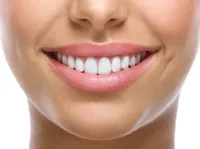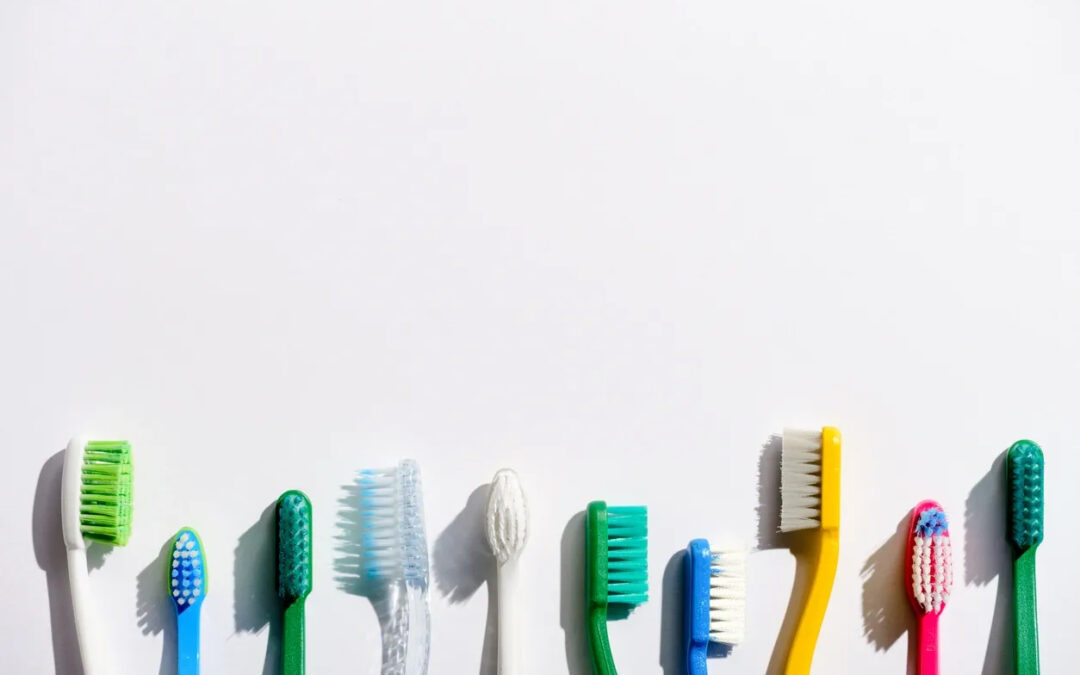
by elision | Jul 21, 2019 | Uncategorized
[vc_row][vc_column][vc_column_text]Dentures are removable replacements for the surrounding tissues and missing teeth. Dentures can be installed as an option for tooth loss resulting from injury, tooth decay, or gum disease. They make it easier to speak and eat better if you do are missing some teeth. Losing your teeth can make your facial muscles sag and make you look older than you actually are. Dentures can be designed to look just like your natural teeth so that there is little to no change in your appearance. There are three kinds of dentures as explained below.
Removable Complete Dentures
These dentures sit atop of the gums where there were missing teeth. Initially, it may be uncomfortable and it can affect how you taste food causing sore gums. They can also click and shift in your mouth whenever you cough, yawn, smile, eat, or speak. The initial costs can be low and they can last for about 7 to 15 years with significant long-term replacement costs. These dentures are usually made and put in the mouth once the remaining teeth have been removed and the tissues are completely healed. This can take a few months.
Removable Partial Dentures
These dentures are usually designed for the replacement of missing teeth from the same arch. They are also ideal for replacing teeth, which might or might not be next to each other. Partial dentures are made from an acrylic base that can be strengthened using a cobalt chrome metal framework in some cases. These dentures often have metal clasps designed to fit over your remaining teeth to hold the denture in place firmly but still allowing easy removal. Some of them are made using a flexible nylon material while the clasps are made using gum-colored nylon to ensure they are less visible when in the mouth. Removable partial dentures can be taken out of the mouth easily for cleaning purposes. Your dentist can also recommend caps or crowns on your natural teeth to improve the partial dentures fit while in your mouth. Partial dentures are meant to be taken out at bedtime and put back in once you wake up. As you get older, your mouth will change,mostly due to the bone losing more of its structures/thicknesss, meaning your removable partial dentures might not be able to fit any more. They can also chip or crack and one of the teeth may become loose. If this happens, you may have to contact your dentist for options such as repair, reline, or remake of the partial dentures.
Missing a tooth? Read on other options for replacement
Click here for implant deals and coupon
Overdentures or All-on-four Implant Supported Dentures
At times, you can save some of your teeth to preserve the jawbone and offer support and stability for this type of denture. Overdentures are usually prepared by a dentist to fit over your natural teeth if there are very few remaining. You can reinforce a full-arch lower denture with only four implants but an upper denture might require at least six implants to offer support. Treatment using Overdentures involves inserting two implants at the front of the dental arch where your missing teeth used to be. The two remaining implants are placed at a 45-degree angle on either side tilting to the back of your mouth. The overdenture will then clip onto the installed dental implants with special attachments on the fitting surface.
New dentures will feel odd in your mouth for a few weeks until you get used to them. Dentures may also feel slightly loose until your tongue and your cheek muscles learn to keep them stationary. Your saliva flow will also increase temporarily, you may experience slight soreness, and irritation but once your mouth get used to the dentures, these issues will go away.
Sources
https://www.mouthhealthy.org/en/az-topics/d/dentures
http://www.ada.org/~/media/ADA/Publications/Files/ADA_PatientSmart_Tooth_Replacement.ashx
https://www.dentalimplantcostguide.com/tooth-replacement-options/
https://www.aaid-implant.org/dental-implants/implants-vs-dentures-and-bridges/[/vc_column_text][/vc_column][/vc_row]

by elision | Jun 26, 2019 | Uncategorized
[vc_row][vc_column][vc_column_text]
Ever wondered what replacement options are available when missing a tooth or teeth?
Missing teeth can make you quite aware of how important they are to your dental health and your looks. The teeth have been designed to help you smile, speak, and chew and if you are missing some teeth, it can be hard to do some of these things. Losing even a back tooth can lead to shifting of the mouth and the dental formula making your face appear older. The good news is that you can easily replace missing teeth using implants, fixed bridges or dentures. Based on what you need, the doctor will suggest an advisable replacement option. Replacement teeth are designed to last for several years, so it is essential to select a treatment that is good for you.
Implants

Dentist in Joliet- Dental implant
Most patients will choose dental implants to replace one or more missing teeth or to support a complete set of dentures. They are dental posts that are placed in the lower or upper jaw surgically to act as a strong anchor for the replacement teeth. They are made using a strong yet lightweight metal known as titanium or other materials accepted by the body. Dental implants are very popular as a replacement option because they are stable and secure making them an appropriate replacement. In order to get implants, you should be in good health overall for you to get the surgery required. You also need to have sufficient bone to support the dental implant. If not, you will need surgery to develop the area that requires the implant. You will also have to commit to regular dental visits and a daily oral care routine.
Fixed Bridge

Dentist in Joliet- crowns and bridges
This is a replacement option that involves filling the space where the teeth were lost by cementing or bonding a fixed bridge into place. There are resin-bonded bridges and tooth-supported fixed bridges. Tooth-supported fixed bridges are a common alternative to dental implants if you are missing a single tooth. They involve the intentional damage of the healthy teeth adjacent to the gap to support and attach the bridge. This type of bridge does not encourage bone growth naturally underneath it meaning the bone can deteriorate with time. Resin-bonded bridges or Maryland Bridges are often considered to replace front teeth because they do not endure the chewing and biting demands of the back teeth. This bridge has wings on each direction to attach to the healthy teeth adjacent to the gap. However, it does not involve grinding down the other teeth. A resin-bonded bridge is better in terms of function and appearance but it is weaker than fixed bridgework and does not last as long as implants do.
Why do I need a crown or bridge? read more
Affordable Dentures

Dentist in Joliet- Denture
Dentures fall into removable complete dentures and removable partial dentures. While complete dentures are replacement options for people with no teeth, removal partial dentures, replace partially lost teeth. Dentures will help you fill out your profile and facial appearance, and give you back your smile. They can be designed to look like your natural teeth. New dentures can feel awkward for several weeks and it will take time to get used to them. They might feel loose until your tongue and cheeks learn how to keep the dentures in place. Overdentures or All-on-four implant supported dentures involve the insertion of implants in the bone or arch. These implants further reinforce the stability of the dentures, as it grips and stabilizes the dentures better. That way, no matter how many candle sticks you blow, they never pop out. Speak with your Doctor about your options.
At Smile League Dental. your comfort and oral health is our priority! We offer Dental implant placement and restorations at very affordable prices. Give us a call today on 815-782-6243 or contact us at www.smileleaguedental.com/contact
Sources
https://www.mouthhealthy.org/en/az-topics/d/dentures
http://www.ada.org/~/media/ADA/Publications/Files/ADA_PatientSmart_Tooth_Replacement.ashx
https://www.aaid-implant.org/dental-implants/implants-vs-dentures-and-bridges/
https://www.dentalimplantcostguide.com/tooth-replacement-options/[/vc_column_text][/vc_column][/vc_row]

by elision | May 30, 2019 | Uncategorized
[vc_row][vc_column][vc_column_text]Brushing and flossing are both crucial for the prevention of gum disease and overall dental care. You need to brush and floss properly for you to achieve the best results. For example, proper brushing takes two minutes at least, to complete and most people probably do not brush for this duration. Actually, most people probably do not pay much attention to the complete routine for oral hygiene. You need to brush and floss using the right techniques to help you maximize your oral health. If you do not brush your teeth for even a few days, you can encourage the development of gum disease. Brushing helps to remove plaque, the main reason behind gum disease and tooth decay. Brushing one’s teeth also slows down or stops plaque formation from building up. What are the advantages of brushing and flossing your teeth on a regular basis?
Removing Plaque
Cleaning your teeth is still a requirement even if you eat a diet that is friendly to your dental health and rich in low-fat dairy, fibrous vegetables, and lean meats. On the other hand, you have probably indulged in some processed food or sugary foods occasionally, which is why you need to brush and floss properly. Brushing in between snacks or meals if not twice a day and flossing once each day can help you prevent oral decay, plaque buildup, and unsightly stains.
Brightening Teeth
Considering brushing and flossing can both aid in the removal of food particles and plaque buildup, this guarantees whiter teeth. You should try to brush more frequently particularly after eating foods rich in carbohydrates to help keep your teeth white. When buying toothpaste, look for whitening options with the ADA approval seal.
Protecting You against Gum Disease
Gum disease is quite rampant in various forms among many people and it has damaging effects on your teeth. Flossing once daily helps to remove bacteria and food particles from areas where your toothbrush cannot reach such as between the teeth. This also prevents tartar buildup leaving you less prone to gum disease.
Tips to Help You Brush and Floss Better
– Always ensure you brush your teeth after eating and also before going to bed using a toothbrush with soft-bristles and fluoride toothpaste. You should aim for at least 2 minutes of brushing time.
– Make sure that you floss daily before going to sleep
– Visit a dentist at least twice annually for cleanings and checkups
– Brush your tongue so your breath stays fresh
You can use a timer on a stopwatch or on your smartphone to help get accustomed to brushing for two minutes. Use gentle, short strokes when brushing and pay close mind to the hard to reach teeth on the gum line and at the back of the mouth. Brush all exterior surfaces of the upper teeth and then the lower teeth followed by the inner surfaces of both the lower and upper teeth. Afterwards, brush the chewing surface on all the teeth and brush your tongue to wrap it all up with fresh breath.
With the right technique, flossing can be very easy. Pull approximately 20 inches of dental floss from your dispenser and hold the ends around your middle and index fingers. Tightly, hold the floss around individual teeth in a c-shape and move it back and forth as if you are pushing and pulling the floss up and down the sides of each tooth.
Sources
https://chcw.org/the-importance-of-brushing-and-flossing/
https://www.mouthhealthy.org/en/az-topics/b/brushing-your-teeth
Teeth whitening
Bleach
At Smile League Dental, your oral health is our priority. To make an appointment, please call 815-782-6243 or visit our website at www.smileleaguedental.com/contact to make an appointment.[/vc_column_text][/vc_column][/vc_row]

by elision | May 10, 2019 | Uncategorized
[vc_row][vc_column][vc_column_text]Medicaid Dentist in joliet
Most parents might show concern about their children’s pacifier use, finger sucking, or thumb sucking habits and they may wonder whether it is harmful to the child. It is also natural to wonder what may happen to the child if he or she does not stop and what is the right age to quit these habits.
Why does my child thumbsuck?
Sucking is one of the child’s most natural reflexes as they typically start to suck on their fingers and thumbs while they are still in the mother’s womb.
Young children and infants might engage in pacifier use, thumb sucking, and sucking of other fingers or objects as it makes them feel happy, secure, and learn more about the world around them. they help some babies calm themselves and thus, fall asleep easily. But if the child is allowed to continue these habits after the baby teeth start developing, this can cause major problems.
Effects of Thumbsucking and Pacifier use
On the other hand, prolonged thumb sucking and pacifier use can cause issues with the normal growth of the child’s mouth and the baby teeth alignment. It may also result in changes in the child’s roof of the mouth. Children who passively put their thumbs in the mouth have a higher tendency to experience difficulty compared to children who suck their thumbs vigorously. It is common to hear a popping sound when an active thumb sucking child removes the thumb from the mouth and aggressive thumb suckers might even experience problems with the development of their front baby teeth.
Thumb sucking whether aggressive or not, can cause misalignment of the child’s baby teeth and they may create the need for dental work in the long run. Long term effects of pacifier use or thumb sucking beyond ages 5 and 6 years include:
– Increased sensitivity of the roof of the mouth
– Germs from the thumb and its surrounding areas affecting the rest of the body
– The child forming a lisp as constant thumb sucking may influence the positioning of the jaw bone
– The child’s baby teeth being pushed around which may cause the formation of an underbite or an overbite.
Thumbsucking or Pacifiers?
Pacifier use can also affect the teeth in almost the same way that finger sucking and thumb sucking does but it is typically an easier habit to break in comparison. Whenever you offer a pacifier to an infant, always make sure it is clean. It is also ill-advised to dip the pacifier in other substances such as sweeteners, honey, or sugar prior to giving it to the child.
When will my child stop Thumsucking or Pacifier use?
Most children tend to stop thumb sucking or finger sucking habits on their own between ages 2-4 years. This behavior essentially lessens during the said period as the child starts spending more of his or her waking hours exploring and studying their environment.
Some helpful tips on how to stop thumb sucking or Pacifier use at the right time include:
- Positively reinforce your child for not sucking.
- Distracting the child with a song or a toy when he or she starts to suck the thumb
- Getting rid of any sources of stress to the child which may cause the child to suck his or her thumb
- Teach the child reasons why he or she cannot continue this thumb sucking habit and even explain the long term effects in a way they can understand
- Avoid punishing or nagging the child for thumb sucking as it can create stress for the child causing him or her to suck the thumb more.
- For an older child, involve him or her in choosing the method of stopping.
- Your dentist can offer encouragement to your child and explain what could happen to their teeth if they do not stop sucking.
- According to American Dental Association, “If these tips don’t work, remind the child of their habit by bandaging the thumb or putting a sock on the hand at night. Your dentist or pediatrician may prescribe a bitter medication to coat the thumb”.
At Smile League Dental, your oral health is our priority. Make an appointment at Smile League Dental by calling 8157826243 or visiting https://smileleaguedental.com/contact
Sources
https://www.123dentist.com/the-effects-of-thumb-sucking-and-pacifiers-2018/
https://www.colgate.com/en-us/oral-health/life-stages/infant-oral-care/ada-08-thumb-sucking-pacifier-use
https://www.mouthhealthy.org/en/az-topics/t/thumbsucking [/vc_column_text][/vc_column][/vc_row]

by elision | Apr 24, 2019 | Uncategorized
[vc_row][vc_column][vc_column_text]When it comes to kids, most parents are unsure of how much toothpaste to apply during tooth brushing. Applying too much or too little toothpaste during brushing of teeth can significantly affect our oral health, especially in kids.
Is fluoride bad for you?
Fluoride is one of the active ingredients in toothpaste. According to American Dental Association, fluoride is nature’s cavity fighter. It helps prevent cavities by strengthening the outer layer of teeth (enamel) against the acid produced by bacteria in our mouth (after consumption of sugar).
Health effects of too much or too little fluoride in toothpaste
Too little toothpaste/fluoride (fluoride deficiency): Applying too little toothpaste during brushing can result in low fluoride in our teeth, increasing one’s risk for cavities.
Too much toothpaste/fluoride (hyperflorosis): In kids below the age of 8 years, when teeth are developing, applying too much toothpaste during brushing can result in ingesting a lot of fluoride. This increases one’s risk of Dental fluorosis, which can lead to unattractive white patches on the enamel. These white patches on the enamel is known as hypomineralization of enamel. Apart from being unattractive, if fluorosis is high, it can cause a weak enamel.
According to the U.S. Centers for Disease Control and Prevention, approximately 40% of children between the ages of 3 and 6 years are using too much toothpaste, predisposing them to Dental Fluorosis.
What amount of toothpaste is safe?
Due to the risk of fluorosis and fluoride poisoning in kids, it is advised to supervise children during brushing.
0 to 2 years: For children less that the age of 2 years, a smear of fluoride toothpaste should be used.
3 to 6 years: No more than a pea-sized amount of toothpaste should be used
Adults: Pea-sized amount of tooth paste, and not a large blob
According to the American Academy of Pediatric Dentistry and American Dental Association, a smear of fluoride toothpaste can be used on babies as soon as a tooth erupts in the mouth.
Where else can I find fluoride?
Apart from toothpaste, fluoride is in community water. In the US, as a public health effort to reduce the risk of cavities by primary prevention methods, fluoride at 0.7 milligrams per liter of water is being added to community water (water from the faucet).
Fluoride can also be obtained from the dentist as a prescription supplement (tablet, drop or lozenge form) or treatment, in the form of gel, varnish or foam.
Speak with your dentist about your options.
At Smile League Dental, your education and health is our priority. We offer FREE fluoride treatment, based on certain specials or discounts. Give us a call today to discuss your options. Call 815-782-6243 for more information or visit smileleaguedental.com.
REFERENCES
https://www.mouthhealthy.org/en/az-topics/f/fluoride [/vc_column_text][/vc_column][/vc_row]

by elision | Apr 11, 2019 | Uncategorized
[vc_row][vc_column][vc_column_text]
What is Oral Cancer?
Oral Cancer is cancer of the mouth (which includes lips, inside of the lips, cheeks, teeth, gums, up to two-thirds of the tongue from the front, and the roof of the mouth) and the middle of the throat, including the tonsils and base of the tongue (this area is known as oropharynx).
What is Cancer?
Cancer is uncontrolled cell growth, which can be very harmful to the body, as it can also spread to other areas of the body.
How common is Oral Cancer?
More that 10,000 people get diagnosed in the United States of Oral cancer every year. Of those who get diagnosed with oral cancer, only about 60 percent would survive after 5 years. Early detection brings about better result following treatment.
What are Oral Cancer Symptoms?
The following are symptoms to watch out for:
- A sore or irritation that doesn’t go away in more than two weeks, in any area of your mouth/ throat ( can also feel like something is stuck in the back of the throat)
- Visible red or white patches
- Pain, tenderness or numbness in mouth or lips
- A lump, thickening, rough spot, crust or small eroded area
- Difficulty chewing, swallowing, speaking or moving your tongue or jaw
- A change in the way your teeth fit together when you close your mouth; this can also mean inability to wear your dentures or any mouth appliance.
- Feeling of numbness, pain in any area of the mouth/throat might be a sign of mouth or throat cancer
- Hoarseness, sore throat, loss of voice.
- Unexplained weight loss
If you notice these symptoms, see your dentist, especially if they have persisted for at least two weeks
Factors that increase the chances of getting Oral Cancer
Smoking: Smokers of cigarettes, cigars, pipe are more likely than non-smokers to get cancers.
Learn more about the negative effect of smoking on oral health
5 steps to quit smoking
Young adults and E-cigarettes
Consumption of Alcohol: People who consume an excess amount of alcohol are more likely to get oral cancers
Age and Sex: Older men are more likely to get cancers
Human Papilloma Virus (HPV), which is a sexually transmitted disease, and has being found to cause certain cancers like cervical cancer, has also being found to cause mouth cancers. These develop typically in the throat, at the base of the tongue and in the folds of the tonsils.
Early diagnosis is key to better treatment outcomes. Regular dental check-ups that include examination of the whole head and neck regions, including the throat can be life saving in detecting oral cancer early.
How can I prevent Oral Cancers?
Be aware of the risk factors that increase the chances of oral cancers. According to American Dental Association (ADA) “Men are twice more likely to get oral cancer as they get older. If you smoke, drink excessive amounts of alcohol or have a poor diet, changing these habits can decrease the chances of developing oral cancer.
Certain strains of HPV can also put you at risk. The CDC recommends that 11- to 12-year-old boys and girls get two doses of HPV vaccine to prevent cervical and other less common genital cancers. It is possible that the HPV vaccine might also prevent head and neck cancers – since the vaccine prevents an initial infection with HPV types that can cause head and neck cancers – but the studies currently underway do not yet have sufficient data to say whether the HPV vaccine will prevent these cancers”.
Remember, early detection is key to better treatment outcomes of oral cancer, so visit your dentist regularly. Here at Smile League Dental, your oral health is our priority. Schedule your Dental checkup today by calling us on:
815-782-6243/ emailing us: smileleaguedental@gmail.com.
References:
https://www.mouthhealthy.org/en/az-topics/o/oral-cancer?_ga=2.196829100.123504656.1520263379-740444263.1506693785
https://www.nidcr.nih.gov/health-info/oral-cancer/more-info?_ga=2.178075173.1654120252.1549470435-1238631280.1549380821
https://www.webmd.com/oral-health/guide/oral-cancer#1
https://www.youroralhealthhub.com/blog-check-for-oral-cancer/
[/vc_column_text][/vc_column][/vc_row]










Recent Comments